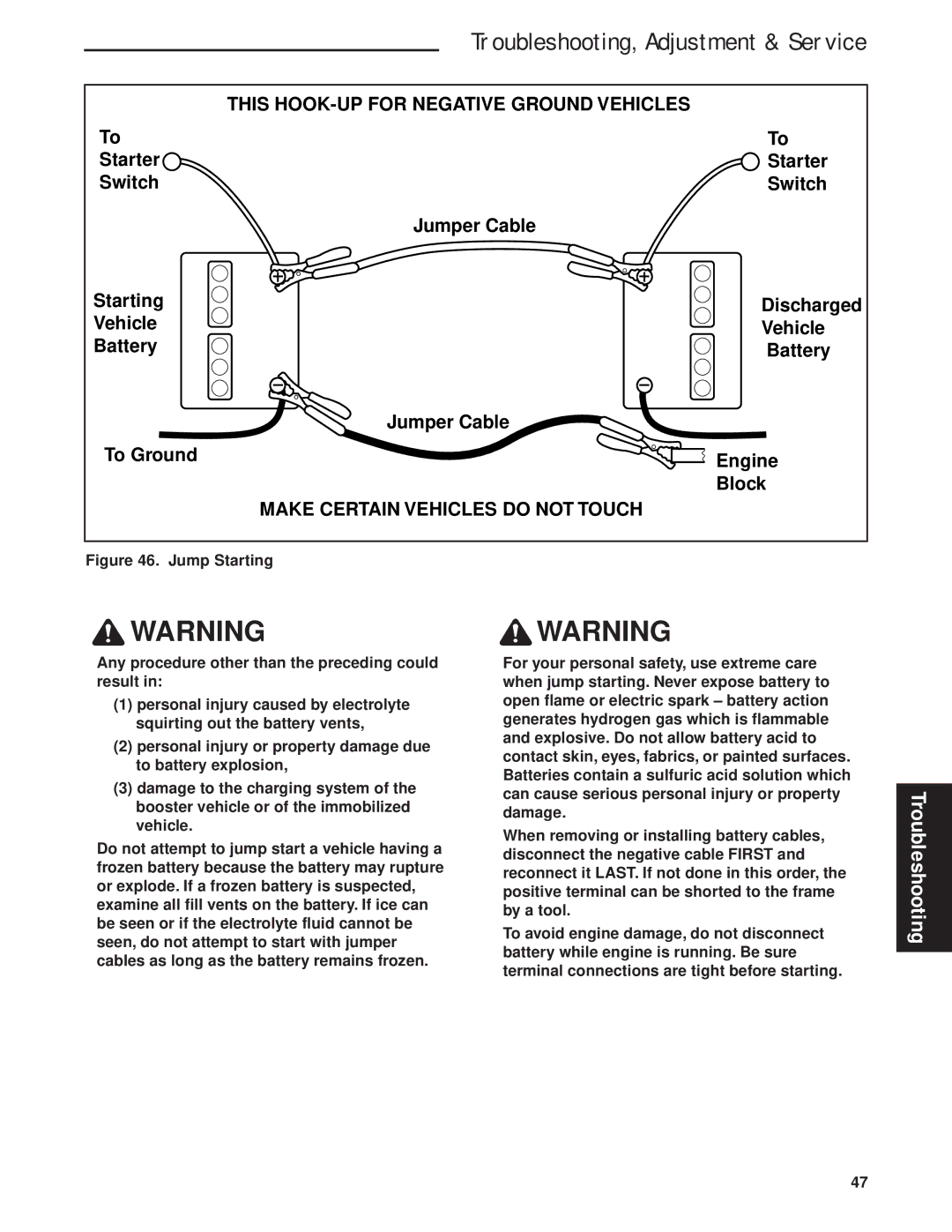
|
| Troubleshooting, Adjustment & Service |
|
| THIS |
To |
| To |
Starter |
| Starter |
Switch |
| Switch |
|
| Jumper Cable |
Starting |
| Discharged |
Vehicle |
| Vehicle |
Battery |
| Battery |
|
| Jumper Cable |
To Ground | Engine | |
|
| |
|
| Block |
|
| MAKE CERTAIN VEHICLES DO NOT TOUCH |
Figure 46. | Jump Starting | |
![]() WARNING
WARNING![]() WARNING
WARNING
Any procedure other than the preceding could result in:
(1)personal injury caused by electrolyte squirting out the battery vents,
(2)personal injury or property damage due to battery explosion,
(3)damage to the charging system of the booster vehicle or of the immobilized vehicle.
Do not attempt to jump start a vehicle having a frozen battery because the battery may rupture or explode. If a frozen battery is suspected, examine all fill vents on the battery. If ice can be seen or if the electrolyte fluid cannot be seen, do not attempt to start with jumper cables as long as the battery remains frozen.
For your personal safety, use extreme care when jump starting. Never expose battery to open flame or electric spark – battery action generates hydrogen gas which is flammable and explosive. Do not allow battery acid to contact skin, eyes, fabrics, or painted surfaces. Batteries contain a sulfuric acid solution which can cause serious personal injury or property damage.
When removing or installing battery cables, disconnect the negative cable FIRST and reconnect it LAST. If not done in this order, the positive terminal can be shorted to the frame by a tool.
To avoid engine damage, do not disconnect battery while engine is running. Be sure terminal connections are tight before starting.
Troubleshooting
47
